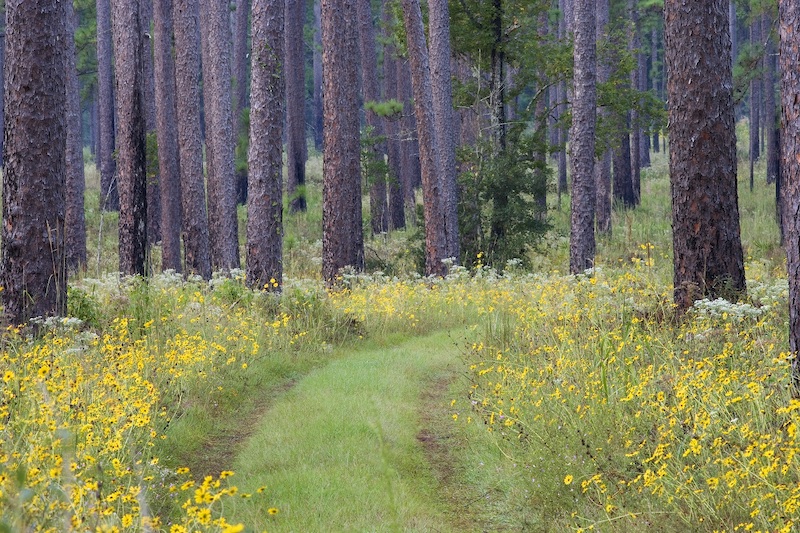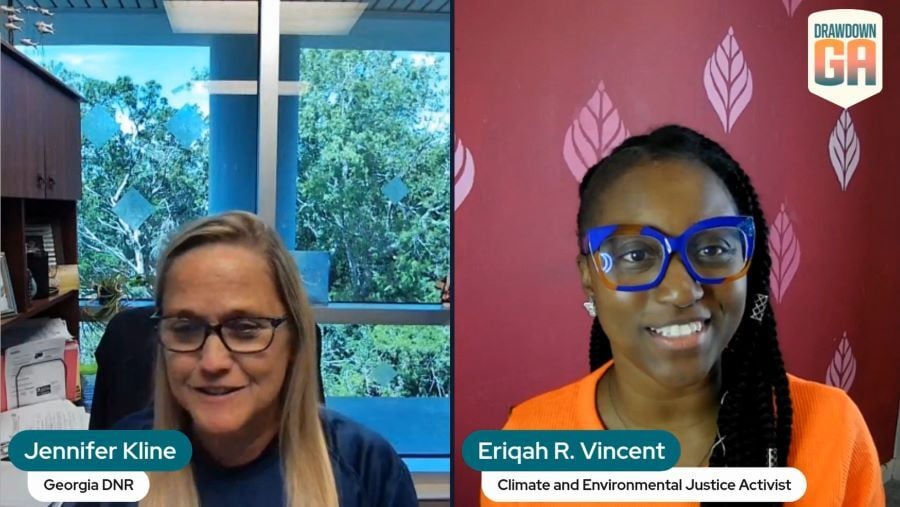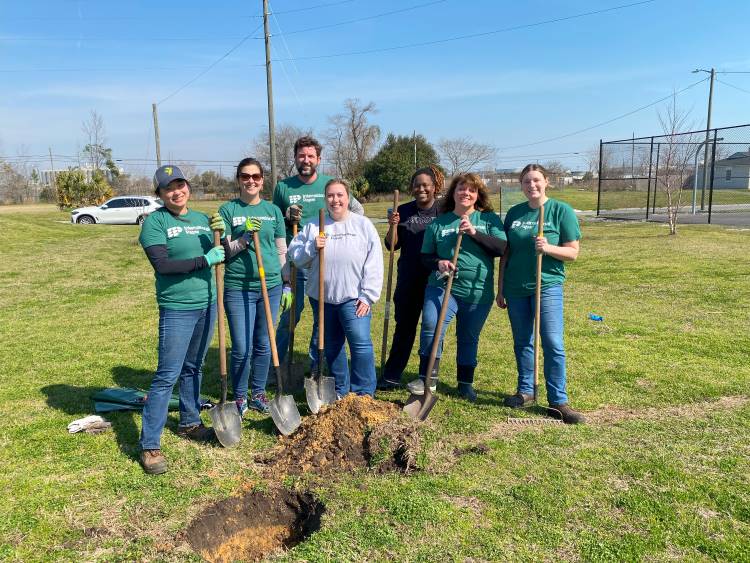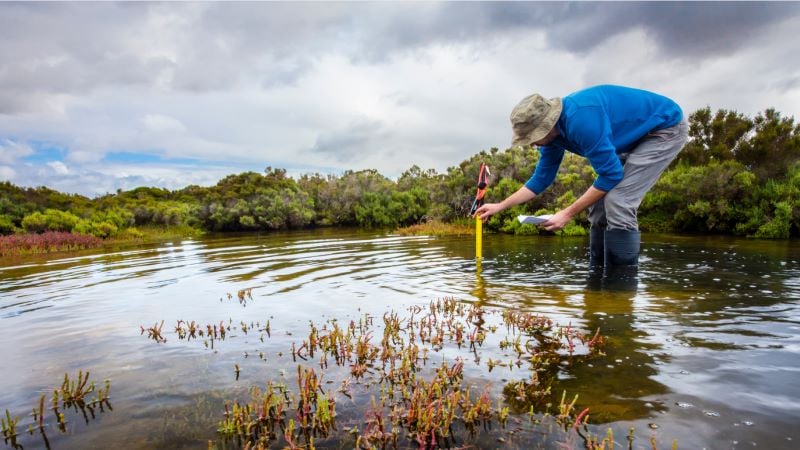Forest stewardship plays a critical role in drawing down carbon from the atmosphere. Georgia’s natural carbon sinks -- including 22 million acres of working forests and rich coastal wetlands -- are a crucial climate solution in our state, as they collectively sequester up to 46 megatons of CO2 each year, offsetting about 27% of total emissions in the state. Protecting and expanding these land sinks by promoting wetland and forest stewardship can help us reach our climate goals as we continue to reduce emissions in other sectors.
Tax Credits as a Tool for Promoting Forest Stewardship
The Georgia Conservation Tax Credit (GCTC) is one of the strongest mechanisms for land conservation in the state, providing landowners with an additional financial incentive to conserve critical acres of Georgia forests, coastal wetlands, and working lands. In a state where more than 90% of land is privately held, this tax credit is an important resource for safeguarding Georgia's environmental integrity and promoting forest stewardship.
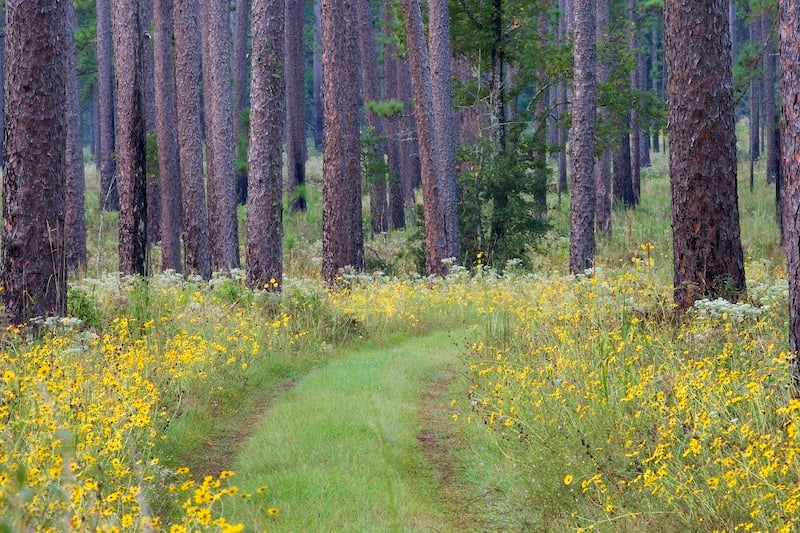 Photo by John Hall
Photo by John Hall
Since the close of the 2021 Legislative Session, the Georgia Conservancy, along with partners in the Association of Georgia Land Trusts (AGLT), made the reauthorization of the GCTC a priority for the 2022 session.
In 2021, House Bill 477 sought to reauthorize the tax credit on a landowner's qualified conservation donation of real property until December 31, 2026. Due to last-minute additions to the bill, unrelated to the tax credit reauthorization, the measure was not passed and the current conservation tax credit expired on December 31, 2021.
However, the continuance of the tax credit remained popular at the State Capitol. Late in the 2022 Legislative Session, an amendment to House Bill 586 was introduced, sponsored by Rep. Sam Watson (and in the Senate by Sen. Steve Gooch). Section 2 of this bill seeks to reinstate the Georgia Conservation Tax Credit with a beginning date of June 1, 2022 and a sunset date of December 31, 2026. Under this legislation, the aggregate amount of conservation tax credits could not exceed $4 million during the calendar year.
On April 1, 2022, House Bill 586 passed after receiving overwhelming support in the Senate and with its amendments agreed upon by the House. It was signed into law by Governor Brian Kemp on May 15.
The Georgia Conservation Tax Credit: A Victory for Forest Stewardship
Re-authorizing the Georgia Conservation Tax Credit is a significant victory for land conservation organizations, particularly non-profit land trusts.
The GCTC offers landowners a financial incentive for protecting their lands via a state income tax credit. Protection can be achieved either through fee-simple donations to conservation organizations or through conservation easements that place permanent restrictions on how the property can be used.
.jpg?width=800&name=XX-Georgia%20Forests%20(Old%20Image).jpg)
Critically, it promotes the conservation of land and natural resources without increasing the land management inventory of governmental agencies.
Examples of environmental resources protected by the tax credit include:
-
Water resources and wetlands
-
Natural habitats for wildlife and plants
-
Working lands, including agricultural lands and forests in production rotation
-
Outdoor recreation areas
-
Outdoor cultural heritage sites
The Georgia Conservation Tax Credit is essential to land conservation in our state, as the tax incentive has supported the permanent conservation of critical lands and habitats. The reinstatement of the GCTC is also important as a succinct statement of Georgia’s conservation values and priorities that inform many aspects of the essential work of land trusts.
The Future of Forest Stewardship and Conservation in Georgia
In the coming years, Georgia Conservancy and AGLT will be working to promote the GCTC and encourage full utilization of the $4 million in credits allotted per year. AGLT will also be coordinating with various influencers, including the State Properties Commission, to propose improvements to the GCTC appraisal process.
The Georgia Conservancy and its partners in the Association of Georgia Land Trusts expressed gratitude to Representative Sam Watson and Senator Steve Gooch for championing this legislation and for members of both the House and the Senate for supporting the Georgia Conservation Tax Credit.


